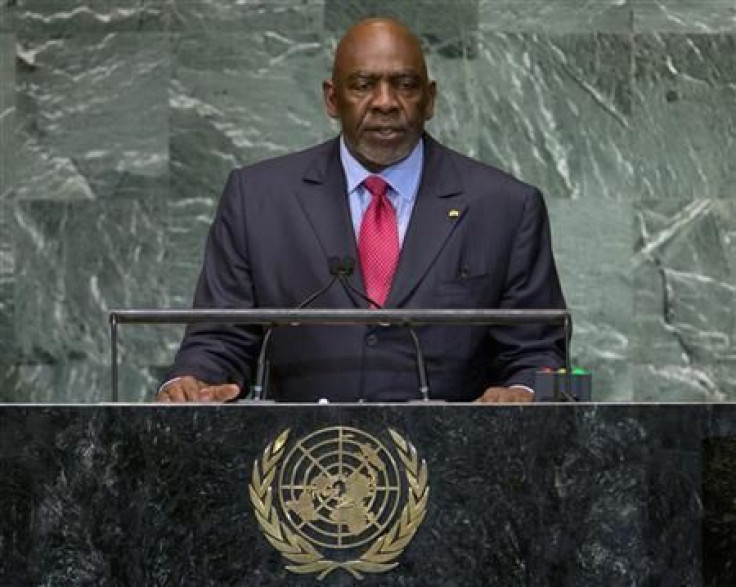Mali's Prime Minister Cheikh Modibo Diarra Resigns After Arrest; Political Crisis Deepens

Mali's Prime Minister Cheikh Modibo Diarra resigned Tuesday, just a few hours after he was arrested by soldiers loyal to an ex-coup leader, triggering fears of turmoil in the West African nation that is battling instability and insurgency.
In a brief statement, Diarra announced that he was resigning with his government. "I, Cheik Modibo Diarra, I resign with my government," he said in brief speech aired by the national broadcaster ORTM Tuesday morning. Diarra, who looked nervous, did not elaborate and gave no reason for his decision.
Diarra was preparing to leave for France when he was arrested by about 20 soldiers loyal to Captain Amadou Sanogo, who led a coup in the country in March this year.
"The prime minister was arrested by about 20 soldiers who came from Kati [a military barracks outside Bamako and headquarters of the former putschists],” a source was quoted as saying by the AFP.
"They said Captain Sanogo sent them to arrest him," the source added.
A security source confirmed the information and added that Diarra had been taken to the former junta headquarters in Kati.
The new developments have worsened the political crisis in the country and are threatening the stability and integrity of the country that has lost half of its territory to the extremists and Tuareg separatists.
The coup in March, which ousted the then President Amadou Toumani Toure, proved disastrous for the African nation as it helped the al-Qaeda-linked Islamic extremists and the Tuareg separatists to take control of half of the country.
Tuareg separatists, a rebellion group of secular separatists fighting to establish a separate nation which they call Azawad in Mali’s North, joined the hard-line Islamists to take control of the North, but their coalition collapsed as the Islamists took control of the key operations and established a rule based on the extremist Islamic principles.
Diarra was made the prime minister after the March coup, in a power sharing agreement among interim President Diouncounda Traore, Sanogo and him. However, Sanogo, who was entrusted with the task of overseeing the reforms in the Mali military, was accused of meddling with the politics, creating rifts among the trio, Reuters has reported.
Diarra was a strong supporter of a military intervention by the West African nations to regain control of the north. The Economic Community of West African States (ECOWAS) has been urging the U.N. Security Council and the U.S. to approve a military intervention in the region and restore stability in Mali.
The western nations have raised concern over the rising influence of the militant-linked groups in northern Mali which threatened the region’s peace and integrity.
However, there are deep divisions among the politicians and military in the country on allowing the foreign military intervention in the region. While some factions approve the foreign-backed military intervention, others believe that the foreign aid should be limited to logistical support and military training.
© Copyright IBTimes 2024. All rights reserved.












